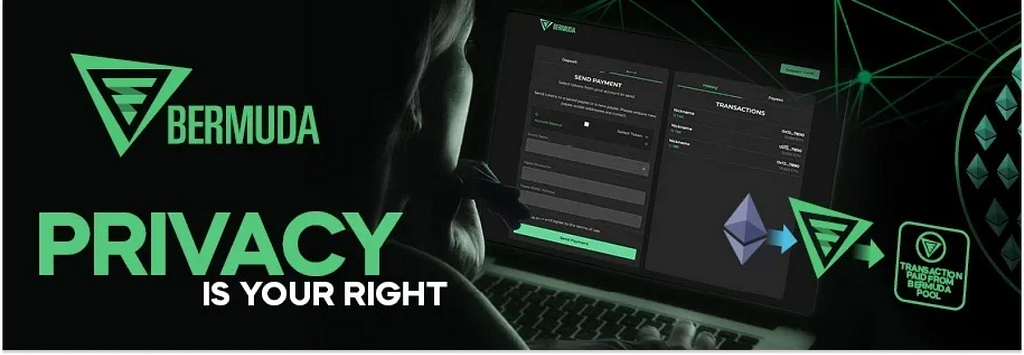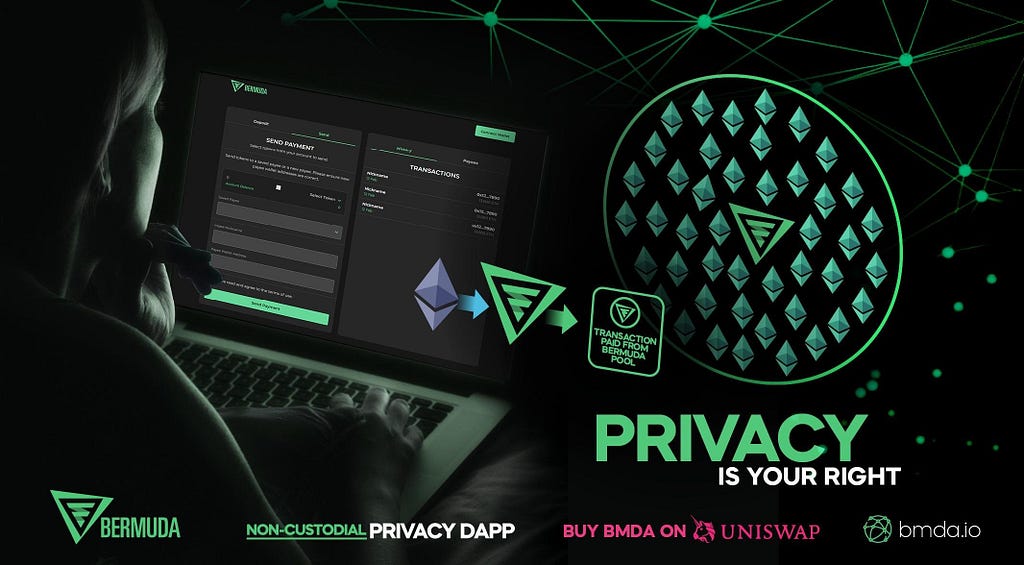
The fight for Privacy — Enter the Triangle
January 30, 2023

The fight for Privacy — Enter the Triangle
In the modern era of technology and online consumerism, they say if you’re not paying for the product, you are the product!
We feel this is the perfect representation of the world we live in today, whether it be the government or private sector, information and user data has emerged as the dominant currency of the 21st century. The introduction of blockchain pulled some of this control away from the powers that be and back into the hands of end users.
While crypto has become a widely adopted form of investment, the prying eyes of civilisation remains a constant threat to a users privacy and security over an individuals holdings.
At the end of 2019, a group of developers sought to help remedy the situation with the launch of Tornado Cash, a privacy mixer for crypto transactions that allowed for private transfer between wallets. Quickly gaining popularity within the crypto community, Tornado Cash provided anonymity and allowed users to retake their privacy.
There are many legitimate use cases for crypto mixers or wallet obfuscation in general. Perhaps you’re an employer that is paying your staff in crypto and wish not to let them see the holdings or your company. Perhaps you are sending tokens as an anonymous gift and do not wish for the recipient to see your holdings. Or perhaps… like us, you wouldn’t let someone look at your bank account holdings and feel the same way about your crypto holdings.
Unfortunately the anonymity of crypto also encourages it’s use to extend to global fund distribution for the less savoury members of society including terrorist cells and those lurking down the proverbial back street alleys of the dark web, thus we are presented with the conundrum of where the limitations of privacy should reside.

In the case of Tornado Cash, the approach was taken to essentially make a users movements completely un-trackable to anyone and everyone, even to the Tornado Cash team itself. They built a web3 protocol with zero knowledge proofs then the dev’s themselves threw away the keys to the system. In a perfect world they offered a perfect solution.
Unfortunately however we do not live in a perfect world and the good intentions of a dev team fighting the good fight for privacy were hijacked in part by criminal activity which ultimately lead to the projects demise. The project was sanctioned, the contract along with many users were blacklisted and the codebase was removed from Github.
Following on from Tornado Cash, a number of projects started popping up in this space and a whiff of familiarity became common among them. Upon closer inspection many would notice that the majority of these projects are based on the Tornado Cash repo with some glitter sprinkled on top to mask the nature of these “new” projects.
Our team also saw an opportunity present itself however no one was overly fond of being extradited and dragged before a court on charges relating to facilitation of funds to a criminal enterprise.
So the question was asked again, what is the right balance of privacy for an everyday user that just wants to stop people prying into their personal holdings?
The second part of the equation is convenience to the user. While Tornado Cash set the bar in privacy, it did not provide the most convenient workflow by forcing users to deposit / transfer specified amounts, with the receiver required to fetch the balance themselves.
So our initial goals for Bermuda were fairly simple:
- Don’t get extradited
- Create a protocol for legal users but also to actively discourage / prevent illicit use
- Provide privacy to a users transactions
- Provide significantly increased versatility and convenience
In order to achieve all of the above it was evident that we could not follow the same workflow as Tornado Cash. With everything there are compromises and for Tornado Cash their focus above all else was Privacy.
That being said, the level of privacy that Tornado Cash offered was far in excess of what the average user needed which is why they became a haven for criminal activity.
There are also many ways that a transaction can be obfuscated or “mixed”. Our approach to this was to offer enough privacy to satisfy the requirements of legal users while significantly increasing ease of use.
We seek to achieve this via a web2/web3 hybrid model. Deposits, verification, and signing all occur on our web3 layer for security and prevent traditional attacks while a web2 layer exists privately behind 3 separate abstraction layers to log data. The hybrid approach also allows for far greater flexibility in both our contract and platform with the benefits of this approach far reaching.
To list a few:
- It provides us the ability to support any ERC20 token we choose to.
- By partnering with or supporting other projects we can convert their tokens into a privacy token. For example, a project could use Bermuda to payout competitions or promotions.
- A user can save specific addresses in the platform for repeat payouts and label their transactions.
- Users can select custom deposit / payout amounts.
- Payouts can be sent directly to a user.
- In the future we can even add the ability to interact with Uniswap to swap inbound / outbound tokens on the fly.
All of that aside, an internal private log acts as a huge deterrent to groups who would want to use the platform for illicit activity. We also have the ability for regional based geo fencing and blacklist specific wallets from using the platform or receiving funds from the platform that are linked to criminal activity.
There are also a number of other highly exciting additions that will be released to the platform over the coming months focused on additional transactional mixing but we are still holding a few cards close to our chest for time being.

Looking at the tokenomics of the project, in December 2022 we launched the BMDA token. A double deflationary token with 0% buy tax and a 5% sell tax.
The sell tax is broken down into:
- 2% for marketing.
- 2% for development.
- 1% burn.
Users that hold at least 20,000 BMDA tokens can use the platform free of charge. For platform users that hold less than 20,000 tokens, a 2.5% service fee is added to each transaction paid out. The 2.5% is broken down into:
- 2% for development which funds the addition of new tokens in the platform.
- 0.5% is sent to the contracts buy back and burn function. This function connects to the Uniswap API, buys BMDA tokens, then immediately burns them further inflating the token price.
With the above implemented, we have now completed phase 1 for the project. Phase 2 is largely focused around adding support for a range of compatible community requested projects.
There will be a number of exciting announcements from the Bermuda team over the next few months so follow us on our social channels or join our Telegram room to stay up to date.
Bermuda — Take back your privacy!
